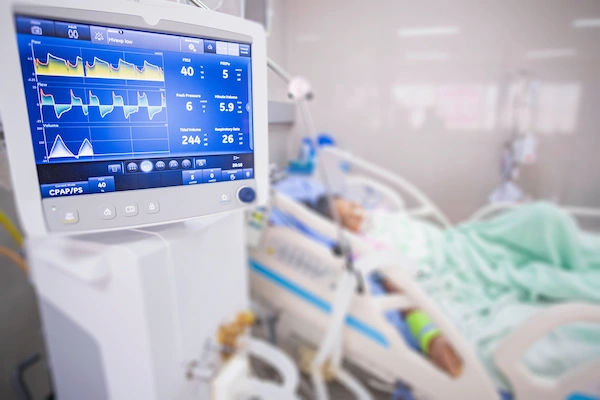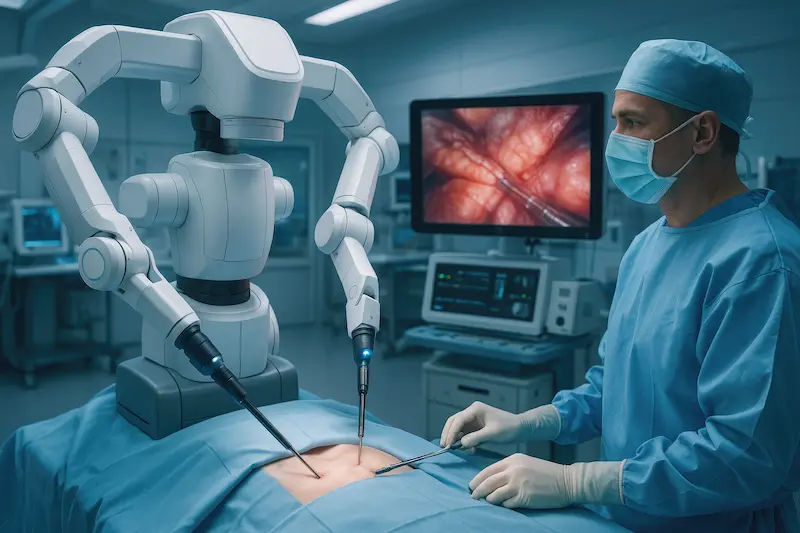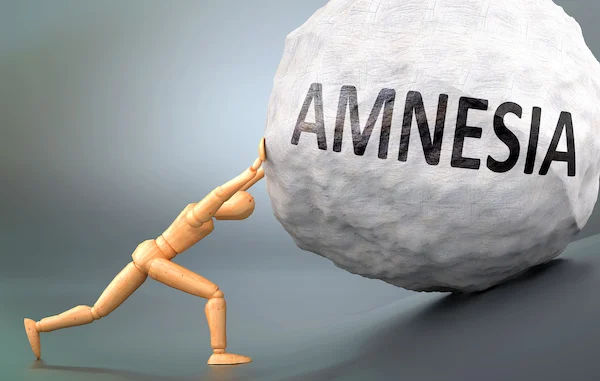Hydatid Disease Overview and Treatment Options
Hydatid disease, or echinococcosis, is a parasitic infection caused by tapeworm larvae. Learn about its causes, symptoms, diagnosis, and various treatment options, including medication, surgery, and PAIR.

Written by Dr. Rohinipriyanka Pondugula
Reviewed by Dr. Vasanthasree Nair MBBS
Last updated on 13th Jan, 2026

Hydatid disease, also known as echinococcosis, is a parasitic infection caused by tapeworms of the Echinococcus species. This condition can affect humans when they accidentally ingest tapeworm eggs, leading to cyst formation in organs like the liver, lungs, or other tissues. While it is rare, hydatid disease can cause serious health complications if left untreated.
In this article, we’ll discuss what hydatid disease is, its symptoms, causes, and available treatment options. We’ll also share some preventive measures to help you stay safe.
What Is Hydatid Disease?
Hydatid disease is caused by tiny tapeworms (Echinococcus granulosus or Echinococcus multilocularis) that live in the intestines of infected animals, such as dogs, foxes, and wolves. Humans can get infected by accidentally swallowing tapeworm eggs, usually through contaminated food, water, or direct contact with infected animals.
Once inside the body, these eggs hatch and form fluid-filled cysts, most commonly in the liver or lungs. These cysts grow slowly over years and can cause serious damage if they rupture or press on nearby organs.
Symptoms of Hydatid Disease
Symptoms may not appear for years because the cysts grow very slowly. When they do show up, they depend on the organ affected:
Liver Cysts (Most Common)
Pain or discomfort in the upper right abdomen
Nausea, vomiting, or loss of appetite
Jaundice (yellowing of skin and eyes) if the cyst blocks bile ducts
Lung Cysts
Persistent cough
Chest pain
Shortness of breath
Coughing up blood in severe cases
Other Organs (Less Common)
Brain: Headaches, seizures
Kidneys: Blood in urine, pain in the lower back
Bones: Weakness, fractures
If a cyst ruptures, it can cause severe allergic reactions, fever, and even lifethreatening complications
Causes and Risk Factors
Hydatid disease spreads when:
People consume food or water contaminated with tapeworm eggs (from infected dog feces).
They handle infected animals (dogs, sheep, cattle) without proper hygiene.
Farmers, veterinarians, and pet owners are at higher risk due to frequent animal contact.
Diagnosis
Doctors use imaging tests and blood work to detect hydatid cysts:
Ultrasound or CT scan – To locate cysts in the liver, lungs, or other organs.
MRI – For cysts in the brain or spine.
Blood tests – To check for antibodies against the parasite.
If you experience unexplained abdominal pain, breathing difficulties, or other symptoms, consult a doctor for proper diagnosis
Treatment Options
Treatment depends on the cyst’s size, location, and complications:
1. Medication (AntiParasitic Drugs)
Albendazole or Mebendazole – These drugs help shrink cysts and prevent new ones from forming.
Used before surgery or for small cysts that don’t require immediate removal.
2. Surgery
If cysts are large, infected, or pressing on vital organs, surgery may be needed.
The surgeon removes the cyst carefully to avoid rupture.
3. PAIR (Puncture, Aspiration, Injection, Reaspiration)
A needle is inserted into the cyst to drain fluid, followed by injection of a solution (like alcohol) to kill the parasite.
Used for liver cysts that cannot be removed surgically.
4. Watchful Waiting (For Small, Stable Cysts)
Some cysts may not need immediate treatment but require regular monitoring.
Prevention Tips
Since hydatid disease spreads through contaminated sources, follow these steps to reduce risk:
Wash hands thoroughly after handling animals, especially dogs, sheep, or cattle.
Avoid consuming raw or undercooked meat from infected animals.
Drink clean, filtered water in areas where the disease is common.
Deworm pets regularly, especially dogs that may carry the parasite.
Practice good hygiene when working in farming or livestock industries.
When to See a Doctor?
If you experience:
Persistent abdominal pain
Unexplained coughing or chest discomfort
Signs of jaundice or allergic reactions
Have a history of contact with farm animals or dogs in high risk areas
It’s important to get checked early to prevent complications.
Final Thoughts
Hydatid disease is a serious but preventable condition. By maintaining good hygiene, avoiding contaminated food/water, and seeking timely treatment, you can protect yourself and your loved ones.
If you suspect any symptoms or need a consultation, Apollo24|7 offers expert care and diagnostic tests. Book an appointment today for a thorough evaluation and personalized treatment plan.
Stay informed, stay safe
Disclaimer: This article is for informational purposes only. Always consult a healthcare professional for diagnosis and treatment.




